Unilever has made no secret about its desire to sell Birds Eye to concentrate on the faster-growing vitality and personal care sides of its business. Last week it did the deed, selling the Birds Eye and Iglo portfolios in Austria, Belgium, France, Germany, Greece, Ireland, the Netherlands, Portugal and the UK, to Permira Funds for E1.73bn (£1.16bn), subject to approval.
The company hasn't frozen itself out of the category completely. The deal does not include its ice cream business, which owns leading brands in the UK such as Magnum, Carte d'Or and Cornetto, and it will retain its Findus frozen food brand in Italy. However, it does mark the end of a relationship between Birds Eye and Unilever that dates back to the late 1930s. So where does this leave the brand?
Fergus Balfour, MD at Birds Eye, believes the move will strengthen it, even though private equity firm Permira has had little experience in this area of the food industry. "This partnership will help grow the category," he says. "We looked at the different models available to us, including a part sale and an outright sale, and I concluded an outright sale was best. With Permira, Birds Eye can have an exclusive focus on the category. It is the company that I wanted to work with because it has a strong focus to grow the business."
Balfour is confident Unilever's UK investment in the brand over the past six months - it spent £21m on a 'truth about frozen' campaign and launched a raft of new products - will not have been in vain. He is also confident Unilever's attempts to boost the category as a whole will be a key part of its new owner's strategy.
"Unilever didn't stop believing that frozen foods was a good category, but it thought it wouldn't prosper best as part of the company. I have taken Permira through all the strategies at length and it believes in the businesses and the campaigns that Birds Eye has been running. We are going to continue to demonstrate that frozen is the best way of keeping food fresh."
Permira has also stated its long-term commitment to the business, although it is keeping its cards closer to its chest. A spokesman says it will look in detail at Birds Eye's product range, including recent launches, and that it has identified changes it would like to make although they are unlikely to be immediate.
Alf Carr, director general of the British Frozen Food Federation, is more forthcoming about the task ahead. While he welcomes the purchase, he says Permira must focus on growing the entire frozen food category if it is to achieve the type of growth required to justify the company's hefty price tag.
"Birds Eye needs to return to the style it had seven or eight years ago where it had a wide view of the category and was not obsessed with the brand," says Carr. "There has been an over-focus on the brand until very recently.
Carr says that to re-engage consumers with frozen products, the company first needs to talk up the category. He predicts that, under the new ownership, the company will begin to re-establish its position in areas in which it has made few developments in recent years. "Beefburgers and meat ready meals are not doing well but they are two areas in which Birds Eye is a very strong brand. There hasn't been a great deal of clarity in the past two to three years on its meat pie range and there could be a regeneration here."
Carr is confident that Birds Eye hasn't been left out in the cold. "The business will fare better under new ownership. I wouldn't be surprised if we saw a remarkable medium-term turnaround."
The company hasn't frozen itself out of the category completely. The deal does not include its ice cream business, which owns leading brands in the UK such as Magnum, Carte d'Or and Cornetto, and it will retain its Findus frozen food brand in Italy. However, it does mark the end of a relationship between Birds Eye and Unilever that dates back to the late 1930s. So where does this leave the brand?
Fergus Balfour, MD at Birds Eye, believes the move will strengthen it, even though private equity firm Permira has had little experience in this area of the food industry. "This partnership will help grow the category," he says. "We looked at the different models available to us, including a part sale and an outright sale, and I concluded an outright sale was best. With Permira, Birds Eye can have an exclusive focus on the category. It is the company that I wanted to work with because it has a strong focus to grow the business."
Balfour is confident Unilever's UK investment in the brand over the past six months - it spent £21m on a 'truth about frozen' campaign and launched a raft of new products - will not have been in vain. He is also confident Unilever's attempts to boost the category as a whole will be a key part of its new owner's strategy.
"Unilever didn't stop believing that frozen foods was a good category, but it thought it wouldn't prosper best as part of the company. I have taken Permira through all the strategies at length and it believes in the businesses and the campaigns that Birds Eye has been running. We are going to continue to demonstrate that frozen is the best way of keeping food fresh."
Permira has also stated its long-term commitment to the business, although it is keeping its cards closer to its chest. A spokesman says it will look in detail at Birds Eye's product range, including recent launches, and that it has identified changes it would like to make although they are unlikely to be immediate.
Alf Carr, director general of the British Frozen Food Federation, is more forthcoming about the task ahead. While he welcomes the purchase, he says Permira must focus on growing the entire frozen food category if it is to achieve the type of growth required to justify the company's hefty price tag.
"Birds Eye needs to return to the style it had seven or eight years ago where it had a wide view of the category and was not obsessed with the brand," says Carr. "There has been an over-focus on the brand until very recently.
Carr says that to re-engage consumers with frozen products, the company first needs to talk up the category. He predicts that, under the new ownership, the company will begin to re-establish its position in areas in which it has made few developments in recent years. "Beefburgers and meat ready meals are not doing well but they are two areas in which Birds Eye is a very strong brand. There hasn't been a great deal of clarity in the past two to three years on its meat pie range and there could be a regeneration here."
Carr is confident that Birds Eye hasn't been left out in the cold. "The business will fare better under new ownership. I wouldn't be surprised if we saw a remarkable medium-term turnaround."










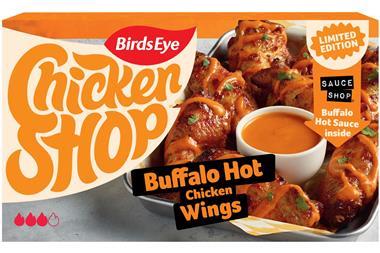

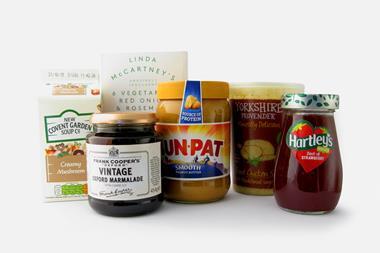
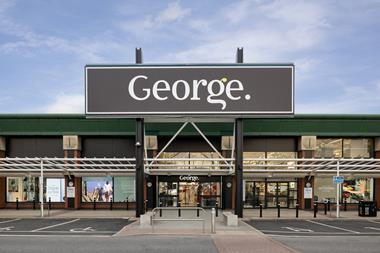
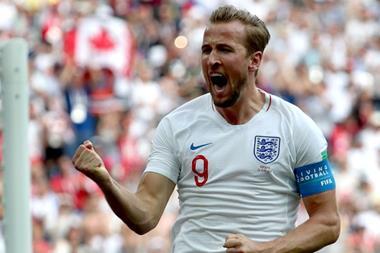



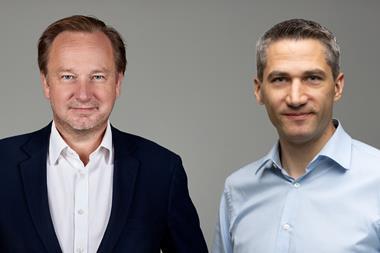
No comments yet